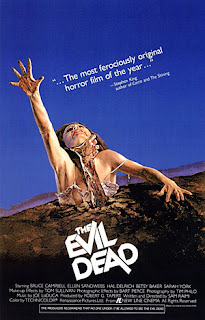1) Lack of a Purpose Worth Backing
Most people think that the reason a band’s Kickstarter fails is because they don’t have enough fans. This is simply just not true. Almost anyone is connected to enough friends and family to raise a reasonable amount of money.
Failing to show those friends, family, and fans that their money is going to a worthy cause is often times the deal breaker.
This happens when a) you have a worthy cause but you’re just terrible at explaining it (bad marketing) or b) you don’t actually have a compelling project that gets people excited.
2) Choosing a Goal That’s Too High for Your Circle of Influence
One big misconception is that Kickstarter is a community of people looking for cool projects to back.
With music Kickstarter projects, you are relying 99% on your existing personal connections. It’s imperative that you assess your Circle of Influence by literally making a list of friends, family, and fans you expect to back you. Add them all up, assume that less than half will back you, then multiply by $60 (the average pledge per backer).
As a side note, we constantly hear people say “the ones I thought would back didn’t, and the ones I didn’t think would back did”.
3) Failure to Work Hard
Your Kickstarter is a personal project that requires you to reach out and connect one-on-one with many people. Simply sending out a mass email and spamming your Facebook page for a month will not lead to success. You need to send personal emails, engage in face-to-face communication, and tell people exactly what you need them to do.
Almost every artist we talk to admits to being afraid to directly ask for money. Don’t beat around the bush and take the passive route. You need to show people that you believe wholeheartedly in what you’re doing by getting out and working your butt off. When they see your passion they’ll respond by backing your cause and spreading the word for you.
4) Giving Up Too Early
Most Kickstarter projects have a huge last minute rush. If your goal seems too far away on the third week of a 30 day campaign, don’t assume it’s a lost cause. Dig in and campaign harder than you ever have.
According to Kickstarter, “While 12% of projects finished having never received a single pledge, 81% of projects that raised more than 20% of their goal were successfully funded.”
5) Imperfect Rewards
Backers pledge at their level of fanhood or engagement in you and your project, not necessarily at the level they find a favorable reward. It’s your job to make sure that all types of backers are able to contribute at the highest level possible.
If a backer is willing to show you their support at the $35 level but you jump from a $20 package to a $50 package, you’re loosing out on potential dollars because they’ll settle for the $20 package.
Reward design is an art and requires a deep understanding of your following and how you plan to frame your project. In other words, are you framing it as a pre-order where it’s important for rewards to match their real world perceived value or are you framing it as a fund raiser where it’s more acceptable to offer the physical CD for $35?
Click Here for the original article












